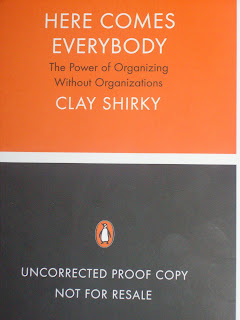Vendor Relationship Marketing.

It's always good to listen to people from other disciplines and a few days ago I caught up with Doc Searls , Adriana and various other programmers and marketers who share an interest in VRM (vendor relationship management). Some interesting themes emerged. 1) The internet has improved the supply side of the economy, but has done less for the demand side. The purpose of VRM is to provide the customer with ways of bearing some of the relationship burden which has in the past been borne entirely by the vendor. In so doing, VRM intends to improve markets by equipping customers to lead as well as to follow 2) For all the investment in data collection, the current purchase model destroys a lot of data - a business knows a purchase has been made and probably by whom, but all the thinking that prefaces that (the decision process, the preferences met and the interaction) is lost. 3) If individuals owned and controlled their own data, you'd facilitate real customer centricity unlike the...














